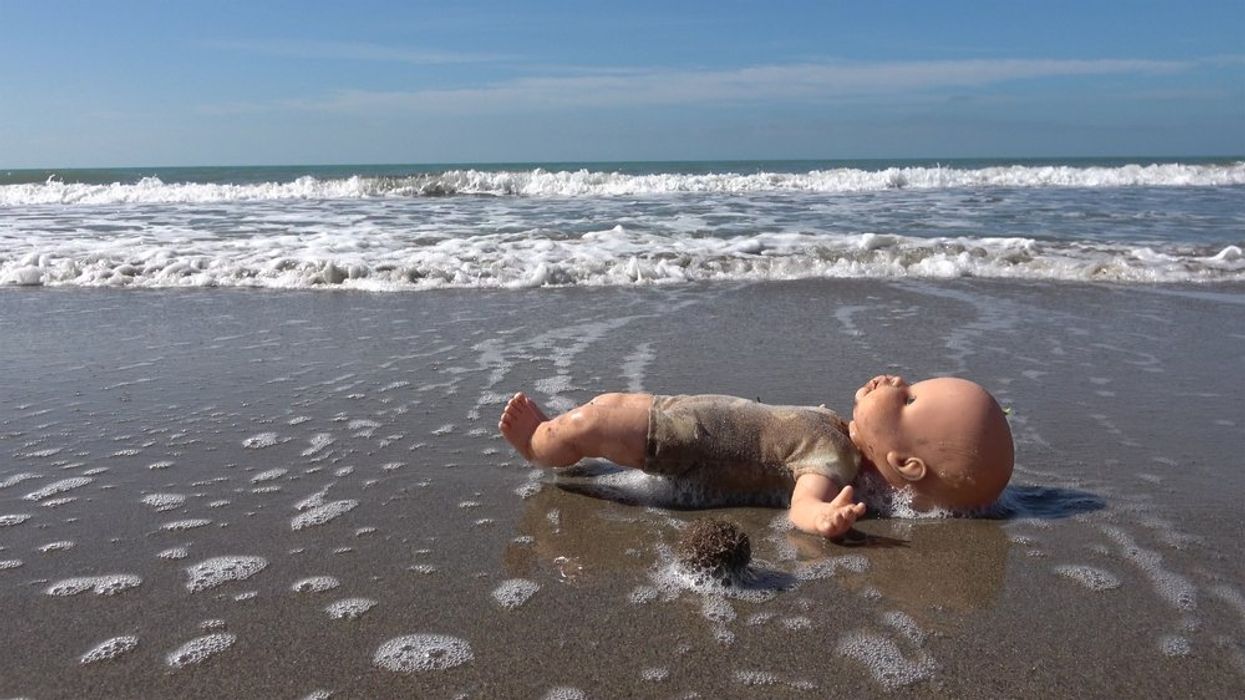A submarine lost on its way to the Titanic shipwreck has captivated global audiences, who are understandably intrigued by the mysteries of the deep blue.
However, for the thousands of seafaring migrants traveling Mediterranean routes every year, deep waters are an unavoidable danger. On June 14, one of the most disastrous migrant shipwrecks to date occurred off the Peloponnese coast of Pylos, Greece.
The fishing vessel’s passengers — who Greek authorities and rescuers reported as coming from Egypt, Syria, Afghanistan, Palestine, and Pakistan — told a Maltese-flagged vessel offering them assistance that “We want nothing more than to go on to Italy.” The account of events from Greek authorities asserts that the boat did not want assistance from Greece.
Frontex, the European Border and Coast Guard Agency, reported that their aircraft also located the ship in international waters, which they described as "heavily overcrowded".
Alarm Phone, an international hotline for seafarers in distress, published their account of events, which included a notification that they sent to Greek and Turkish authorities on behalf of the distressed ship’s passengers. In this message, they pleaded for assistance, stating that there were “750 persons on board incl. Many women and children”. They added that “several people, among them some babies, are very sick. The people on the boat said that they cannot go on. They are urgently asking for help.”
Alarm Phone also referred to Greece as "Europe's shield," and cited violent consequences of migrant encounters with the Greek coastal guard. Their brutal history could explain why the fishing boat's passengers would be reluctant to accept their help.
All subsequent calls that Alarm Phone had with the passengers were difficult to understand, or interrupted by poor connection. The last message they received was “Hello my friend. … The ship you send is…” which cuts abruptly.
The vessel reportedly took a sharp left, then a sharp right, resulting in the vessel capsizing. Passengers were thrown off the outer decks, and the ship completely sank into the sea.
The rescue operation is one of the biggest of its kind in the Mediterranean, as Greek coastguard Nikos Alexiou said in a statement to Greece's ERT TV. As of June 14, 104 passengers have been rescued, and 79 bodies have been recovered.
This shipwreck is one of countless migrant tragedies that have occurred in recent years. The International Organization for Migration (IOM) recently reported on data from their Missing Migrants Project: nearly 3,800 people from the Middle East and North Africa died on migration routes in 2022 alone, with the number of unreported deaths likely being much higher.
Sea-Watch, a rescue organization focused on saving stranded passengers in the Mediterranean, posted an open letter in which 180 human rights organizations speak out against the injustices behind the Pylos shipwreck. They used the opportunity to highlight the European Union's disregard for migrants in Europe, demanding for a change to European border policies that are hostile to refugees seeking asylum.
"In all this uncertainty, one thing is unmistakable: This shipwreck – as well as countless others before – is the direct consequence of political decisions taken to prevent people from arriving in Europe," they said.


















































